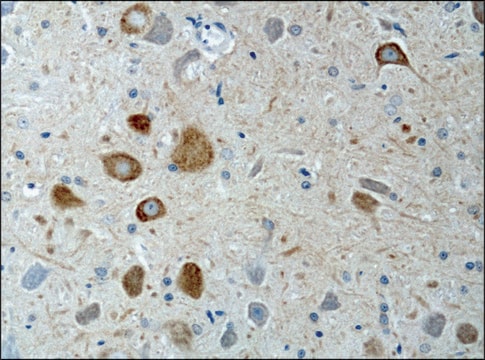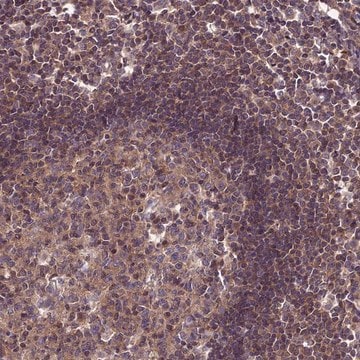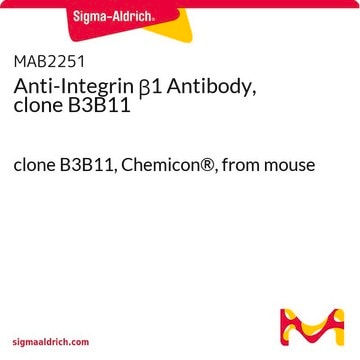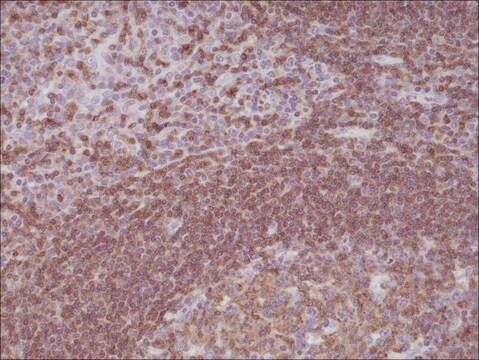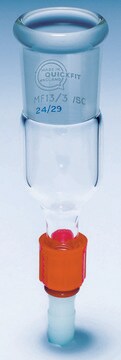Wichtige Dokumente
SAB4200530
Anti-ZNF746 antibody produced in rabbit

~1.0 mg/mL, affinity isolated antibody
Synonym(e):
Anti-Parkin-interacting Substrate, PARIS
Größe auswählen
326,90 €
Listenpreis467,00 €Sparen Sie 30%Versandbereit am22. April 2025Details
Größe auswählen
About This Item
326,90 €
Listenpreis467,00 €Sparen Sie 30%Versandbereit am22. April 2025Details
Empfohlene Produkte
Biologische Quelle
rabbit
Qualitätsniveau
Konjugat
unconjugated
Antikörperform
affinity isolated antibody
Antikörper-Produkttyp
primary antibodies
Klon
polyclonal
Form
buffered aqueous solution
Mol-Gew.
antigen ~90 kDa
Speziesreaktivität
rat, mouse, human
Erweiterte Validierung
recombinant expression
Learn more about Antibody Enhanced Validation
Konzentration
~1.0 mg/mL
Methode(n)
indirect immunofluorescence: 2.5-5.0 μg/mL using SH-SY-5Y cells.
western blot: 1.0-2.0 μg/mL using using rat brain extracts (S2 fraction) and NIH3T3 fibroblast cell extracts.
UniProt-Hinterlegungsnummer
Versandbedingung
dry ice
Lagertemp.
−20°C
Posttranslationale Modifikation Target
unmodified
Angaben zum Gen
human ... ZNF746(155061)
mouse ... Zfp746(69228)
rat ... Zfp746(312303)
Verwandte Kategorien
Allgemeine Beschreibung
Immunogen
Anwendung
Biochem./physiol. Wirkung
Physikalische Form
Haftungsausschluss
Sie haben nicht das passende Produkt gefunden?
Probieren Sie unser Produkt-Auswahlhilfe. aus.
Lagerklassenschlüssel
10 - Combustible liquids
Flammpunkt (°F)
Not applicable
Flammpunkt (°C)
Not applicable
Hier finden Sie alle aktuellen Versionen:
Analysenzertifikate (COA)
Die passende Version wird nicht angezeigt?
Wenn Sie eine bestimmte Version benötigen, können Sie anhand der Lot- oder Chargennummer nach einem spezifischen Zertifikat suchen.
Besitzen Sie dieses Produkt bereits?
In der Dokumentenbibliothek finden Sie die Dokumentation zu den Produkten, die Sie kürzlich erworben haben.
Aktive Filter
Unser Team von Wissenschaftlern verfügt über Erfahrung in allen Forschungsbereichen einschließlich Life Science, Materialwissenschaften, chemischer Synthese, Chromatographie, Analytik und vielen mehr..
Setzen Sie sich mit dem technischen Dienst in Verbindung.